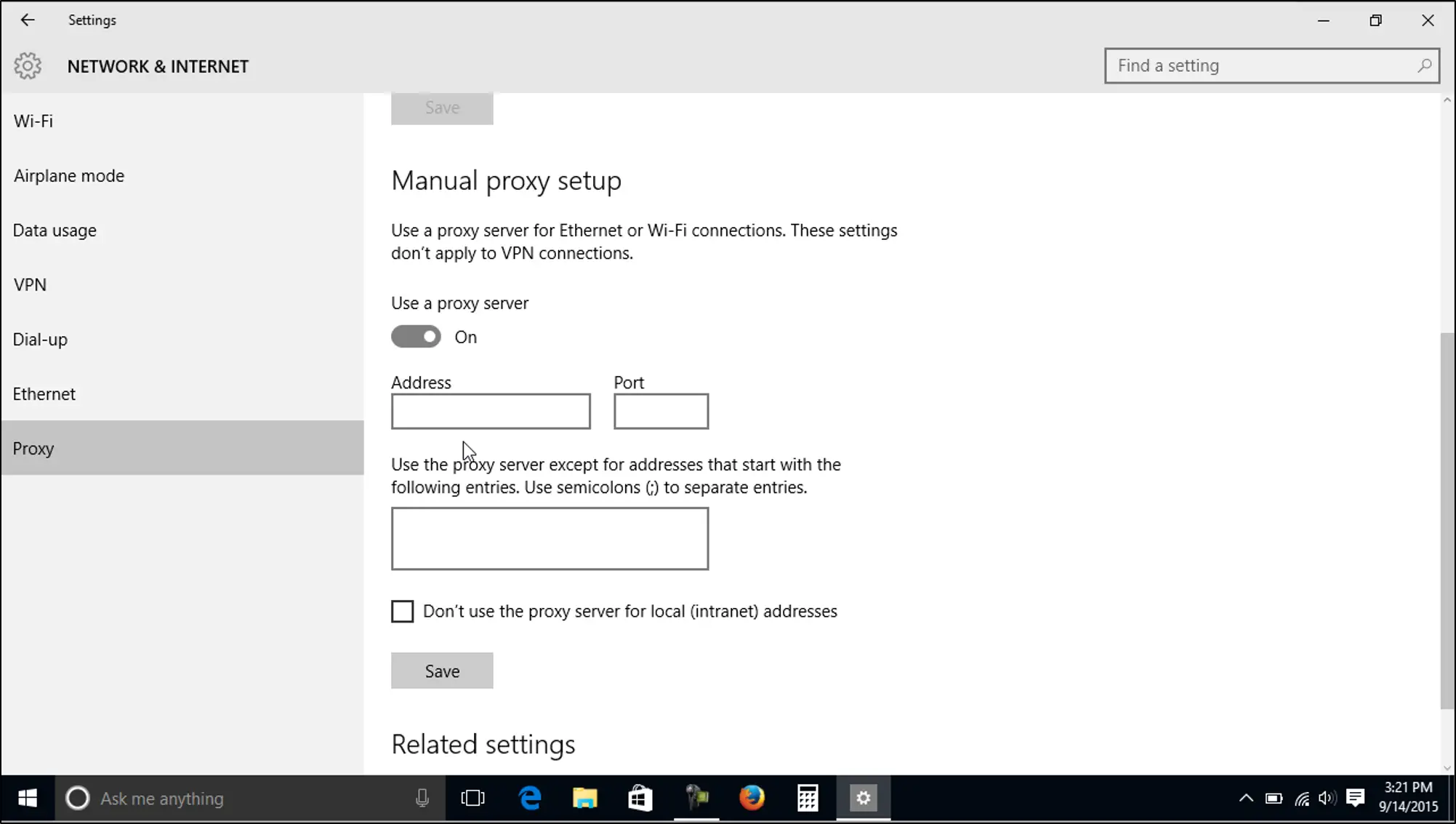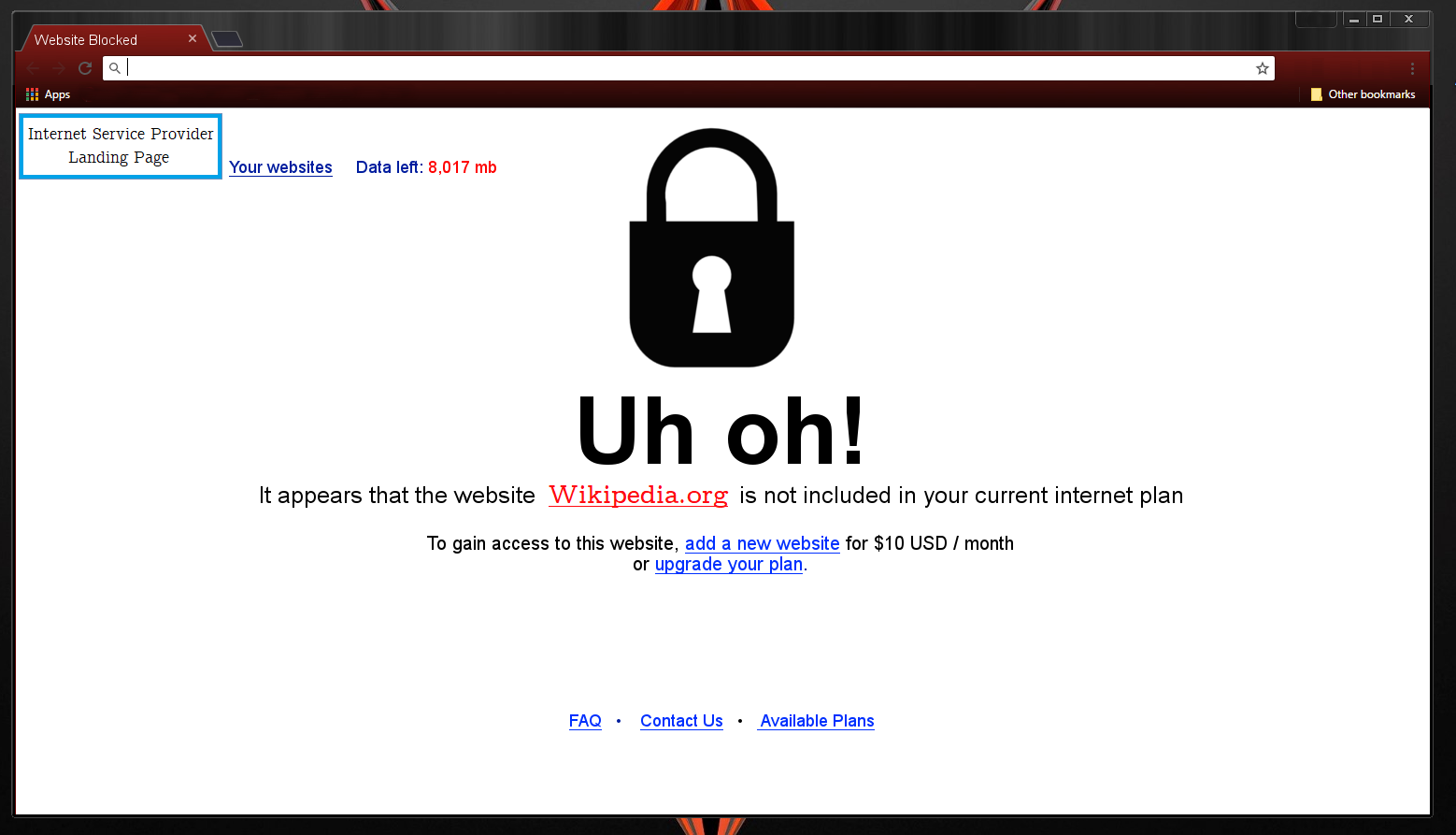Introduction
Welcome to our comprehensive guide on how to buy a proxy server. In today’s digital age, where online privacy and security are of utmost importance, using a proxy server has become increasingly popular. Whether you’re an individual looking to protect your personal information or a business seeking to secure your network, purchasing a proxy server can help you achieve your goals.
But first, let’s discuss what a proxy server is and why you might need one. A proxy server acts as an intermediary between your device and the internet. When you send a request to access a website or any online resource, it goes through the proxy server, which then forwards the request on your behalf. This process hides your IP address and provides various benefits, such as increased anonymity, bypassing geographical restrictions, and filtering out malicious content.
So, why do you need a proxy server? There are several compelling reasons. Firstly, a proxy server enhances your online security by masking your IP address, making it difficult for hackers and other malicious entities to track your online activities. Additionally, using a proxy server can help you bypass internet censorship imposed by governments, organizations, or even your internet service provider (ISP). This is especially crucial if you live in a region with restricted access to certain websites or online content.
Moreover, a proxy server allows you to access geo-restricted content. Let’s say you want to watch a TV show or stream a movie that is only available in a specific country. By connecting to a proxy server located in that country, you can bypass the geographical restrictions and enjoy access to the content you desire.
Now that we understand the benefits of using a proxy server, let’s explore the different types of proxy servers you can choose from. There are mainly three types: HTTP Proxies, SOCKS proxies, and VPNs (Virtual Private Networks). Each type has its own strengths and features, so it’s important to consider your specific needs before making a purchase.
What is a Proxy Server?
A proxy server is an intermediary server that acts as a gateway between your device and the internet. When you access a website or any online content, instead of connecting directly to the server hosting that content, your request goes through the proxy server first. The proxy server then forwards your request on your behalf, allowing you to access the desired resource.
One of the primary functions of a proxy server is to hide your IP address. Your IP address is a unique identifier assigned to your device by your internet service provider (ISP). By using a proxy server, your IP address is masked, meaning that the websites or online services you access only see the IP address of the proxy server, not your actual IP address.
This anonymity provided by a proxy server offers several benefits. Firstly, it enhances your online security and privacy. By hiding your IP address, it becomes difficult for cybercriminals and other malicious entities to track your online activities and gather sensitive information about you.
Additionally, a proxy server can bypass internet censorship and geographical restrictions. In some regions, certain websites or online content may be blocked or restricted by the government or other entities. By connecting to a proxy server located in a different region, you can access these blocked resources, allowing you to browse the internet freely and without limitations.
Proxy servers also offer caching capabilities, which can improve website loading times and overall performance. When you access a website through a proxy server, it stores a copy of the website’s content. If another user requests the same content, the proxy server can deliver it directly from its cache, reducing the load on the website’s server and improving the speed at which the content is delivered.
There are different types of proxy servers available, each with its own features and purposes. The most common types include:
- HTTP Proxies: These proxies are designed specifically for HTTP traffic. They are commonly used for accessing websites and other online resources.
- SOCKS Proxies: SOCKS proxies operate at a lower level and can handle various types of internet traffic, including HTTP, FTP, and torrenting.
- VPNs (Virtual Private Networks): While not strictly a proxy server, VPNs offer proxy-like functionalities. They create an encrypted tunnel between your device and a remote server, providing privacy and security.
Understanding what a proxy server is and its functionalities is essential in making an informed decision when purchasing one. In the next sections, we will explore the factors you should consider when buying a proxy server and the different options available in the market.
Why do you need a Proxy Server?
In today’s digital landscape, the need for a proxy server has become increasingly important. Whether you are an individual or a business, there are multiple reasons why you might benefit from using a proxy server.
One of the primary reasons to use a proxy server is to enhance your online privacy and security. When you connect to the internet directly, your IP address is exposed, making it easier for hackers, advertisers, and other malicious entities to track your online activities. By using a proxy server, your IP address is masked, adding an extra layer of protection and making it difficult for anyone to trace your real identity.
Another advantage of using a proxy server is the ability to bypass internet censorship and access geo-restricted content. In some regions, governments, organizations, or ISPs impose restrictions on certain websites or online services. By connecting to a proxy server located in a different country, you can circumvent these restrictions and access the content that might otherwise be unavailable to you.
Proxy servers also offer the benefit of increased anonymity. When you browse the internet without a proxy, your online activities can be tracked through cookies and other tracking mechanisms. By using a proxy server, you can prevent websites and online services from collecting your personal information and provide a higher level of privacy while surfing the web.
For businesses, proxy servers can play a crucial role in data protection and security. By routing all internet traffic through a proxy server, companies can implement advanced filtering and monitoring mechanisms to ensure that their employees are accessing only authorized resources and to protect against potential threats such as malware and phishing attacks.
In addition, proxy servers can improve internet performance and speed. When websites are accessed through a proxy server, the server can cache the website’s content, allowing subsequent requests for the same content to be served more quickly. This caching mechanism not only reduces the load on the website’s server but also improves the overall browsing experience for users.
Furthermore, proxy servers are valuable tools for digital marketing and SEO professionals. By using proxies with different IP addresses, marketers can analyze search engine results from different locations and gather valuable data for their marketing campaigns. Proxies also enable professionals to perform competitive analysis, track keyword rankings, and monitor website performance from various locations.
Whether you are concerned about your online privacy, want to access geo-restricted content, or need to secure your business’s network, a proxy server can provide a solution. By understanding the benefits and advantages of using a proxy server, you can make an informed decision that aligns with your specific needs and requirements.
Types of Proxy Servers
When it comes to proxy servers, there are different types available, each with its own set of features and functionalities. Understanding the different types can help you choose the most appropriate one for your needs. Here are the three main types of proxy servers:
1. HTTP Proxies: HTTP proxies, also known as web proxies, are specifically designed to handle HTTP traffic. They are commonly used for accessing websites and online resources. When you connect to an HTTP proxy server, your web requests are routed through the server, allowing you to browse the web anonymously and bypass certain restrictions. HTTP proxies are relatively easy to set up and compatible with most web browsers.
2. SOCKS Proxies: SOCKS (Socket Secure) proxies operate at a lower level compared to HTTP proxies. They can handle various types of internet traffic, including HTTP, FTP, and torrenting. SOCKS proxies are known for their versatility and are often used for applications that require higher security levels or need to support protocols other than HTTP. They provide a higher degree of anonymity and are commonly used by individuals who require more advanced proxy features.
3. VPNs (Virtual Private Networks): Although not strictly a proxy server, VPNs offer proxy-like functionalities and are widely used for privacy and security purposes. VPNs create an encrypted tunnel between your device and a remote server, which can be located in a different country. All your internet traffic passes through this tunnel, making it difficult for third parties to intercept and decipher your data. VPNs provide a high level of security and privacy and are ideal for individuals or businesses seeking comprehensive protection.
Each type of proxy server has its own advantages and use cases. HTTP proxies are suitable for basic web browsing, while SOCKS proxies cater to more advanced requirements. VPNs offer comprehensive privacy and security measures but may require more technical know-how to set up and configure.
It’s important to consider your specific needs, whether it’s accessing geo-restricted content, improving online anonymity, or securing your network, before choosing the right type of proxy server. Additionally, you should also factor in the level of technical expertise required and the compatibility of the proxy server with your devices and applications.
Now that we have explored the types of proxy servers available, let’s move on to the next section, where we will discuss the factors you should consider when buying a proxy server.
Factors to Consider when Buying a Proxy Server
When purchasing a proxy server, there are several important factors to consider to ensure that you choose the right one that meets your specific requirements. By evaluating these factors, you can make an informed decision and select a proxy server that best suits your needs. Here are the key factors to consider:
1. Proxy Server Type: As mentioned earlier, there are different types of proxy servers available, such as HTTP proxies, SOCKS proxies, and VPNs. Think about the type of proxy server that aligns with your needs. Consider factors such as the level of anonymity required, the type of internet traffic you’ll be using, and the security features you need.
2. Server Location: The location of the proxy server is crucial, especially if you want to access geo-restricted content or bypass regional internet censorship. Make sure the proxy server provider offers servers in the desired locations, allowing you to connect from the regions you need.
3. Reliability and Uptime: Look for a proxy server provider that offers high reliability and uptime. A reliable proxy server ensures that your connection is stable and available when you need it the most. Check reviews and testimonials from existing users to gauge the reliability of the provider.
4. Speed and Performance: Consider the speed and performance offered by the proxy server. Slow proxy servers can negatively impact your browsing experience and online activities. Look for providers that offer fast and optimized proxy servers, ensuring smooth and efficient internet connections.
5. Scalability: If you’re purchasing a proxy server for business purposes, consider the scalability options offered by the provider. Ensure that the proxy server can handle the anticipated amount of traffic and users, and that you have the ability to scale up or down as your needs change.
6. Security Features: Evaluate the security features provided by the proxy server. Look for features like encryption, authentication, and malware protection to ensure that your online activities and data remain secure and protected.
7. Customer Support: Consider the level of customer support offered by the proxy server provider. In case you encounter any issues or have questions, you want to ensure that prompt assistance is available. Look for providers who offer 24/7 customer support through multiple channels, such as live chat, email, or phone.
8. Pricing: Pricing is always a crucial factor. Consider the pricing plans offered by the proxy server provider and ensure that they fit within your budget. Take note of any additional fees or charges that may apply.
By carefully evaluating these factors, you can find a proxy server that meets your needs in terms of functionality, performance, security, and reliability. Take the time to research and compare different providers to make an informed decision and choose the best proxy server for your requirements.
Understanding Proxy Server Pricing
When purchasing a proxy server, understanding the pricing structure is crucial to ensure that you select a service that not only fits your budget but also meets your specific requirements. Proxy server pricing can vary depending on several factors, so it’s important to have a clear understanding of what you’re paying for. Here are some key aspects to consider when it comes to proxy server pricing:
1. Proxy Server Type: Different types of proxy servers may have varying pricing models. HTTP proxies, SOCKS proxies, and VPNs may all have different price points based on the features and functionality they provide. It’s important to understand the differences in pricing based on the type of proxy server you need.
2. Bandwidth Limits: Some proxy server providers impose bandwidth limits on their plans. These limits determine the amount of data you can transfer through the proxy server within a given time period. Be aware of these limits, especially if your intended usage requires high data transfer volumes, as exceeding the limits may incur additional charges.
3. Locations and IP Addresses: Proxy servers located in specific regions or with specific IP addresses may have different pricing levels. Depending on your needs, you may require proxies from specific locations or with dedicated IPs, which could affect the pricing structure. Consider the pricing variations when choosing the locations and IP addresses associated with your proxy server.
4. Number of Proxies: Some proxy server providers offer plans based on the number of proxies you require. This can be useful if you have multiple devices or need proxies for different purposes. Understanding the pricing model based on the number of proxies can help you choose a plan that fits your needs.
5. Subscription Duration: Proxy server pricing can also depend on the subscription duration you choose. Providers often offer discounts for longer-term subscriptions, such as quarterly or annual plans. Consider your usage patterns and budget to decide whether a shorter or longer subscription duration is more suitable for you.
6. Additional Features and Services: Some proxy server providers offer additional features and services, such as advanced security measures, dedicated customer support, or access to specialized proxy networks. These additional features may come at an extra cost, so evaluate whether these offerings align with your specific needs and if the added expense is justified.
7. Free Trials and Refund Policies: Before committing to a proxy server provider, check if they offer free trials or money-back guarantees. These options allow you to test the service and determine if it meets your expectations before making a financial commitment.
When evaluating pricing, it’s important to strike a balance between cost and quality. Cheaper options may provide limited features or unreliable performance, while more expensive proxy servers may offer improved reliability and additional benefits. Evaluate your budget and priorities to find a proxy server that offers a balance between affordability and meeting your specific requirements.
Lastly, it’s worth considering the reputation and reviews of the proxy server provider. Look for feedback from existing customers to gain insights into the service’s quality, reliability, and value for money.
By understanding the various factors that influence proxy server pricing, you can make an informed decision and choose a provider that offers a pricing structure that aligns with your budget and requirements.
Where to Buy Proxy Servers
When it comes to purchasing proxy servers, there are various options available to choose from. It’s important to select a reputable and reliable source to ensure that you receive a high-quality service. Here are some common places where you can buy proxy servers:
1. Proxy Service Providers: Many dedicated proxy service providers offer a wide range of proxy servers tailored to different needs. These providers specialize in delivering proxy services and often offer a variety of server types, locations, and features. Examples of popular proxy service providers include Luminati, Smartproxy, and ProxyMesh. Research different providers to find one that matches your specific requirements.
2. Technology Companies: Some technology companies that focus on cybersecurity or networking solutions may also offer proxy server services. These companies typically provide a comprehensive range of services, including proxy servers, VPNs, and other security features. Examples of such companies include Cloudflare and Akamai. If you already engage with a specific technology company for other services, it’s worth exploring if they offer proxy server solutions as well.
3. Online Marketplaces: E-commerce platforms and online marketplaces can also be a source for buying proxy servers. Websites like eBay, Amazon, and Alibaba often have listings for proxy servers, allowing you to choose from a variety of options. However, exercise caution when purchasing from these platforms and ensure that you thoroughly research the seller’s reputation and read customer reviews before making a purchase.
4. Developer Forums and Communities: Online developer forums and communities can be a valuable resource for finding proxy servers. Websites like GitHub, Stack Overflow, and forums dedicated to networking or cybersecurity often have discussions and recommendations regarding proxy servers. Engaging with these communities can provide insights, suggestions, and even direct links to trusted proxy server providers.
5. Proxy Aggregators: Proxy aggregators are platforms that gather and provide access to multiple proxy server providers in one place. These platforms allow you to compare and choose from different providers, locations, and plans. Examples of popular proxy aggregator platforms include AllProxy, ProxyRack, and BestProxyProviders. Using an aggregator can help simplify the search process and give you a comprehensive overview of available options.
When considering where to buy proxy servers, be sure to thoroughly research and evaluate each option. Consider factors such as reputation, customer reviews, pricing, available locations, and customer support to make an informed choice. It’s also beneficial to test the service before committing to a long-term purchase by utilizing free trials or smaller subscription plans.
Remember, finding a reliable and reputable source for proxy servers is essential to ensure the quality, security, and performance of the service. Take the time to compare different options and choose a provider that aligns with your needs, budget, and technical requirements.
Steps for Buying a Proxy Server
Buying a proxy server involves several steps to ensure that you find the right solution for your needs. By following these steps, you can navigate the process smoothly and make an informed purchase decision. Here are the steps to consider when buying a proxy server:
1. Identify Your Needs: Start by identifying your specific requirements. Determine why you need a proxy server, the type of proxy server you need (such as HTTP, SOCKS, or VPN), the desired server locations, and any other specific features or functionalities you require. This will help you narrow down your options and choose a proxy server that meets your needs.
2. Research Different Providers: Conduct thorough research on different proxy server providers. Consider factors such as reputation, customer reviews, pricing, available server locations, and customer support. Look for providers that have a good track record, positive user feedback, and transparent pricing models.
3. Compare Plans and Pricing: Compare the plans and pricing offered by different providers. Look for options that align with your budget and requirements, considering factors such as server locations, bandwidth limitations, and the number of proxies required.
4. Check for Free Trials or Demo Accounts: Many proxy server providers offer free trials or demo accounts that allow you to test their services before making a purchase. Take advantage of these trial periods to evaluate the performance, speed, and reliability of the proxy servers. This will help you determine whether the provider meets your expectations.
5. Evaluate Security and Privacy Features: Consider the security and privacy features provided by the proxy server provider. Look for features such as encryption, authentication mechanisms, and malware protection to ensure that your online activities and data remain secure.
6. Assess Technical Compatibility: Ensure that the proxy server is compatible with the devices and applications you intend to use it with. Check for compatibility with your operating system, web browsers, and any other relevant software or tools.
7. Read the Terms and Conditions: Take the time to carefully read the terms and conditions provided by the proxy server provider. Pay attention to the refund policy, contract duration, and any limitations or usage restrictions outlined in the agreement.
8. Make the Purchase: Once you have evaluated and compared different providers, and you are confident in your choice, proceed with making the purchase. Follow the provider’s instructions for signing up, selecting a plan, and providing payment information.
9. Set Up and Configure: After purchasing the proxy server, follow the provider’s instructions for setting up and configuring the server. This may involve configuring your device’s network settings or using specific software provided by the provider.
10. Test and Monitor: Once the proxy server is set up, test its functionality and monitor its performance. Verify that you can access the desired websites or online resources, and ensure that the server operates smoothly and meets your expectations. If any issues arise, reach out to the provider’s customer support for assistance.
By following these steps, you can confidently navigate the process of buying a proxy server. Remember to prioritize your specific needs, thoroughly research providers, and carefully evaluate the features and pricing before making a purchase. Taking the time to make an informed decision will ensure that you find a reliable proxy server that meets your requirements.
Conclusion
In conclusion to our guide on buying a proxy server, we have explored the importance of proxy servers, their various types, factors to consider before purchasing, understanding pricing structures, where to buy them, and the steps involved in the buying process. Proxy servers play a critical role in enhancing online security, privacy, and access to content. Whether you’re an individual seeking anonymity or a business safeguarding your network, a proxy server can be a valuable tool.
When buying a proxy server, it is essential to understand your specific needs and choose a type that aligns with those requirements. Consider factors such as server location, reliability, speed, security features, pricing, and customer support. Thoroughly research different providers, read customer reviews, and take advantage of any free trials or demos to ensure that you make an informed decision.
Additionally, understanding the pricing structure is crucial to selecting a proxy server that not only fits your budget but also provides the necessary features and performance. Evaluate the pricing based on factors such as bandwidth limits, server locations, and additional services offered by the provider.
You can find proxy servers from dedicated proxy service providers, technology companies, online marketplaces, developer forums, or proxy aggregators. Consider the reputation, customer reviews, and available options from these sources when making a decision.
Following the steps outlined in our guide will help you navigate the process of buying a proxy server successfully. Identify your needs, research providers, compare plans and pricing, evaluate security and privacy features, check for free trials, read terms and conditions, make the purchase, set up and configure the server, and test its functionality.
Remember, choosing the right proxy server is crucial for a smooth and secure online experience. Take the time to find a reliable provider that offers the features and performance you need. By investing in a reputable proxy server, you can enhance your online security, privacy, and access to content. Stay informed, stay protected, and enjoy the benefits that a proxy server can provide!

























